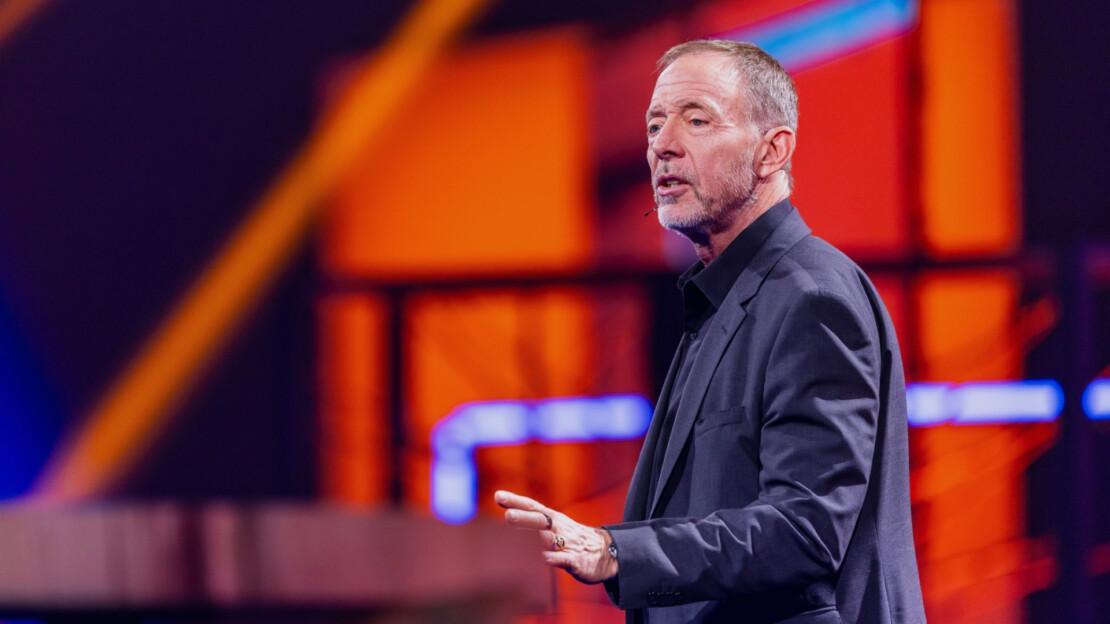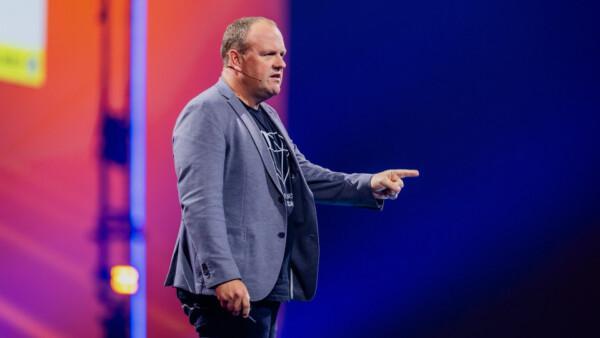4Oct2024
While hostage negotiation may seem a world away from the low stakes discussions we find ourselves in each day, it is still wise to employ battle tested tactics proven to work in even the most high pressure of situations. In fact, Former FBI Lead Hostage Negotiator and bestselling author Chris Voss, believes that the skills he honed in crisis negotiation apply to all forms of communication, allowing you to become the positive difference maker in the lives of the people you meet.
Human Emotions: The Foundation of Negotiation
Chris began his keynote by emphasizing the importance of understanding human emotions. Drawing from Elon Musk’s comments in a recent interview, Chris discussed how the human brain—specifically the limbic system—reacts the same way whether ”it’s being chased by a sabre-tooth tiger or being confronted by an angry spouse.”
He continued by highlighting research that distinguished between feelings and emotions. While emotions are innate and universal: joy, sadness, anger, fear, and disgust, feelings like guilt and anxiety develop based on individual experiences. In addition, four out of five core emotions are negative, meaning people experience a unique and complex blend of often negative emotions in response to stressful situations—and each person responds differently based on their own history.
While this represents a challenge to those trying to connect with others, Chris stressed that understanding these emotions can help you to ”connect more quickly with people and be the difference in their daily lives.”
The Power of “No”
Chris then introduced a central negotiation strategy that contradicts conventional wisdom: the value of getting someone to say “no” rather than “yes.” He explained that in traditional sales and negotiation techniques, people are often conditioned to hear “yes” as the ultimate goal.
Sales professionals, for instance, are trained to get potential customers to agree to several small questions, creating a “yes momentum,” which leads to a larger commitment. However, this can backfire because individuals feel manipulated and anxious when pressured to say “yes.”
“Empathy and human communication is about understanding how it feels to hear ‘yes,’ not just say it,” Chris remarked.
He shared a personal story of how he successfully convinced Jack Welch, former CEO of General Electric, to speak at his class at USC by framing his request with a “no” question: “Is it a ridiculous idea for you to come and speak at the negotiation course I teach at USC?” Welch’s initial scowl eventually led to a positive response because Chris made him feel comfortable by allowing him to say “no” first.
Chris explained that “no” makes people feel safe, protected, and in control. He shared another example of a student fundraising for a Republican political committee. By shifting from a “yes” script to a “no” script, changing “Would you like to see Republicans back in the White House?” to “Have you given up on taking the White House back in November?” the students saw a 23% increase in donations. The lesson? Encouraging “no” creates space for genuine dialogue without triggering feelings of entrapment.
Listening for “That’s Right”
The next critical concept Chris introduced was the power of listening for a “that’s right” response rather than simply pushing for agreement. In negotiations, he argued, the goal should not be to get someone to say “yes” but rather to make them feel understood. The best indicator of this, according to Chris, is when someone says “that’s right.” This response signals that the other person feels heard and that their perspective has been accurately reflected.
Chris underscored this idea with a powerful story from his hostage negotiation days. A US citizen kidnapped in the Philippines had been held for ransom, with the captors demanding $10 million framed as compensation for war damages. After months of stalling, Chris instructed his negotiator to reflect back the captors’ own reasoning in detail. The negotiator said, “You’re not asking for $10 million of ransom. You’re asking for $10 million of war damages… the oppression of the colonial powers, the Spanish, the Japanese, the atrocities.” The captor paused and responded with, “That’s right,” after which the $10 million demand vanished, and the hostage was eventually released.
This technique of active listening, repetition, and reflection creates empathy and connection, even with adversaries. It demonstrates the negotiator’s deep understanding of the other party’s concerns, which can de-escalate tensions and lead to productive outcomes.
The Importance of Connection
Chris encouraged attendees to prioritize building authentic connections. He introduced a simple, yet powerful question: “What do you love about X?” This question, he explained, prompts people to tap into the deep-thinking part of their brain, which triggers positive emotions and reveals their values. “When people begin to tell you about the things they love, it tells you about them,” Chris noted. This approach helps build rapport faster than traditional methods because it goes beyond surface-level conversation.
Even when the person doesn’t love the topic in question, Chris suggested that this can still be an opportunity for greater understanding. “Their motivations for why they’re doing something they don’t love get you deeper into understanding them,” he explained. In such instances, a simple follow-up question, such as “Why?” can provide further insight into their reasoning.
Be the Difference
To conclude, Chris reiterated the importance of human connection and the role empathy plays in successful negotiations. He emphasized that effective negotiation isn’t about winning or coercing; it’s about making the other person feel understood. Whether in business, personal relationships, or even in crisis situations, the goal should be to foster genuine dialogue and mutual respect.
He left the audience with a call to action:
“When the sun rises tomorrow, be the difference in people’s lives.”
This message encapsulated his broader philosophy: that negotiation is not just a transactional skill, but a way to positively impact others by fostering better communication, deeper understanding, and lasting relationships.
Key points
- Understanding emotions is key to communication. Chris emphasized that most human emotions are negative, but by recognizing this, we can better connect with others.
- The value of “no.” Instead of aiming for a “yes,” allowing people to say “no” makes them feel safe and more open to discussion.
- Seek a “that’s right” instead of agreement. Making the other person feel understood is more valuable than simply trying to reach a quick agreement.
- Ask deep, personal questions. Questions like “What do you love about X?” create faster connections and reveal people’s values.
- Negotiation is about empathy, not coercion. Understanding the other person’s perspective and making them feel heard is the most effective way to reach an outcome.
Questions for Reflection
- How can you use the power of “no” in your daily interactions to reduce anxiety and foster trust?
- In what ways can you improve your listening skills to ensure others feel truly heard and understood?
- How might asking deeper, more personal questions help you build stronger relationships in both professional and personal settings?
- What are some situations where you could benefit from aiming for a “that’s right” rather than seeking agreement?
- How can you practice being the difference in others’ lives through the way you communicate and connect?


